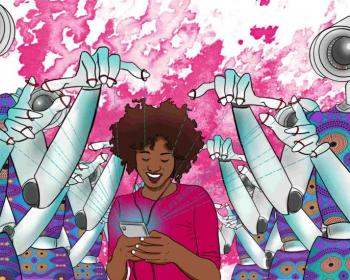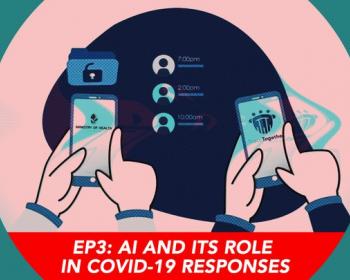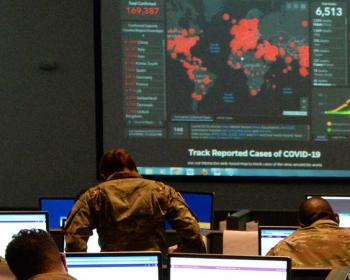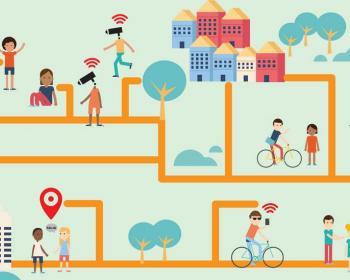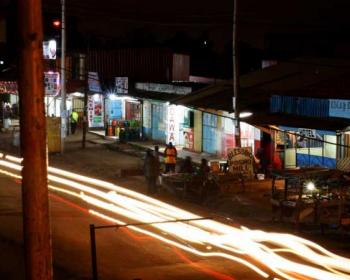big data
This first piece in a three-part series using a feminist data justice perspective to understand artificial intelligence, privacy and data protection in South Africa looks at data and the right to privacy focusing on the current health pandemic.
On the third episode of Pretty Good Podcast, ARTICLE 19 digital programme officer Vidushi Marda dissects the role of artificial intelligence (AI) in the region’s response to COVID-19 and what the new applications of this technology mean for digital rights after the pandemic.
Kate Sim is a DPhil student at the Oxford Internet Institute researching the datafication and automation of sexual harassment reporting systems in US higher education. In this interview with Deep Dives, Kate talks about her research on sexual harassment, digital technologies and big data.
APC joined dozens of other organisations and researchers to call on social media companies to enable future research and analysis about the “infodemic” side of COVID-19 by preserving information about what their systems are automatically blocking and taking down.
Many nations are considering proposals to use digital technologies to confront the COVID-19 pandemic. This joint statement calls on the OECD to ensure the protection of privacy and other fundamental human rights in the use of these technologies.
Over 100 organisations from around the world signed a joint statement stressing that digital surveillance to fight COVID-19 can only be justified if it respects human rights, and setting out conditions that must be met before the use of surveillance technology to fight the pandemic.
APC outlines positions on some of the areas covered in the digital strategies presented by the European Commission that will undoubtedly set a key precedent for global discussions on issues such as regulating platforms, data governance and artificial intelligence.
A damning new report from the United Nations Special Rapporteur on extreme poverty and human rights, Philip Alston, raises alarm about the rise of the digital welfare state, which uses data and technologies to automate, predict, identify, surveil, detect, target and punish the poor.
In this interview with GenderIT.org, Shmyla Khan of Digital Rights Foundation in Pakistan talks about the ways in which privacy rights are relevant, used and abused in the lives of women and gender diverse people.
The rollout of the Huduma number is taking place all over Kenya. This piece traces the experience of one young woman, Nyangi, as she tries to get a card, and more broadly the problems and hurdles posed by the system of digital identity.

Association for Progressive Communications (APC) 2022
Unless otherwise stated, content on the APC website is licensed under Creative Commons Attribution 4.0 International (CC BY 4.0)



